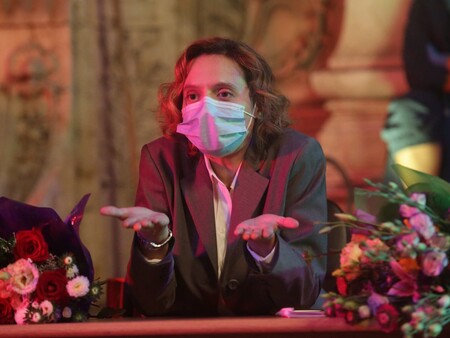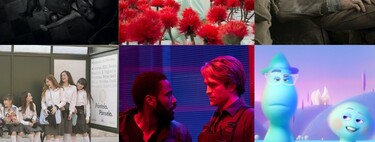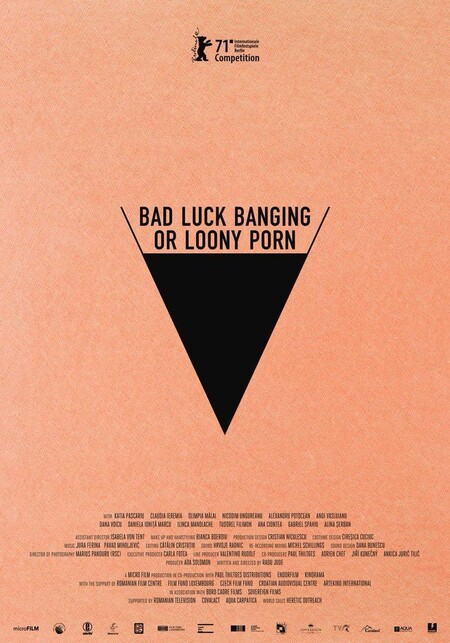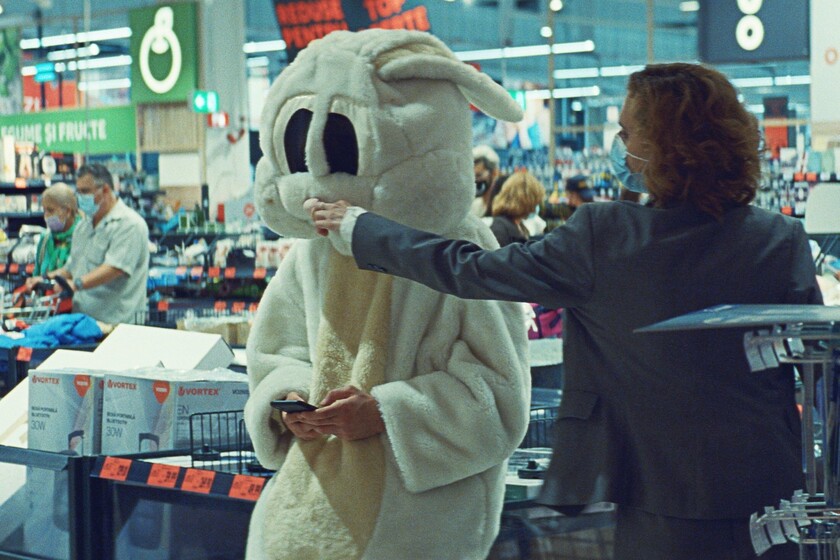‘Bad Luck Banging or Loony Porn’, the award-winning latest work by the Romanian filmmaker Radu Jude, which has already won the Silver Bear of the Berlin competition for ‘Aferim!’ (2015), is actually not one but three movies. Better: three, plus a bonus track, a homemade movie tape that presents us, fully naked, which will be the “common thread”, to call it in some way, of the rest of the plot. It’s about Emi, history teacher in a prestigious institute.
The video you recorded has inexplicably ended up uploaded to PornHub and with it, obscenity has penetrated – understand me – the Academy. Alarms are sounding before a society morally rooted in religious principles unspoken and unquestioned.
Three movies in one
The first takes the form of Emi’s (Katia Pascariu) journey through the streets of Bucharest, on her way to explain her situation to the director of the center, in view of a meeting about the aforementioned material. Phone in hand and I cry to the sky, the woman will be one more of the human landscape circulating amid a garish crowd of sideboards, tatty posters, and free samples.
People with their masks rolled up, passers-by with bare faces (don’t hurry if you experience a slight dizziness when you see them) and, surprisingly, a lot of people in disguise. The landscape will take the reins of a chain of situations in which Emi will be the protagonist only accidentally: on numerous occasions the camera will let it go to focus, instead, on some detail of the environment or simply to contemplate the unstoppable flow of the human mob in the capital.
It is even more common that then, in the wandering of the camera, the conflict arises, from the exchange of reproaches to the physical violence. Watching Jude’s movie it is easy to fall into two certainties: one, that the indulgences of capitalism have wiped out rationality of homo sapiens and, second, that humanity will always tend towards entropy and finally towards hatred.

This particular portrait-denunciation of the poor state of the Romanian social fabric ends, of course, with a slow sweep through the façade of the Cinematograful Bucharesti, a movie theater dedicated to works of authorship. The camera pauses for a moment on the stone statues that crown the building: Could the seventh art be the last Institution to resist the onslaught of chaos of contemporary society?
Cinema, Radu Jude speculates, is like that polished shield of Athena that, according to Greek mythology, allowed us to finish off Medusa without falling under the spell of her gaze. The filmmaker proposes to filmic expression as the only way to observe horror, beyond obtuse and opaque moralities. A way to elucidate, if you will, the nature (never the meaning) of the chaos that is presented before our eyes.

Thus, the second part of the triptych of ‘Bad Luck Banging or Loony Porn’ comes under the structure of a dictionary. A compilation of aphorisms that will recall the truths of Walter Benjamin, or the playful mirror that they found in David Shields’s work, ‘Hunger for Reality’, for its provocative bite and for its real lack of muscle. That barking dog …
Jude proposes the petulant lightness of the boutade as a lens to identify the knots that gangrene the social order of contemporary Romania. But even the status of thinker-in-images that he forges for himself does not free him from the scourge of his own conclusions.
‘Bad Luck Banging or Loony Porn’: Radu Jude’s perfect crime flaw
In the last part of this film triptych (definitely the most dispensable), the filmmaker stages the meeting with parents and the cloister that Emi had been preparing in the first act: it is about a totally Kafkaesque trial, in which the most characteristic character-types, in Jude’s eyes, of the Romanian social horizon will attend. A priest, a military man, a leftist intellectual, ladies of implacable and dubious ethics, members of various minorities … A firm hand and weak thinking, make up all of them, without exception, a chorus of irrepressible screaming. The director and scriptwriter finishes off –and reigns supreme– in the indiscriminate bombardment of every being who believes in something.

Let’s go back to the revealing part one. The filmmaker selects, cuts and orchestrates a real chaos operetta. Violence is staged in an incredibly wide range of shapes and colors, in a dense and changing sideboard of confrontations.
From the examples that populate it, Jude draws all his rowdy conclusions. Nevertheless, there is something about this great exhibition that the filmmaker’s hand cannot control, an aspect that neither he nor anyone else can fully master and that is essential to address the validity of the film’s political denunciation. Stay with me.

Radu Jude prepares a rich amalgam of conflictive situations and presents them in a thousand different ways, from the physical or verbal confrontation in the foreground to the growling of animals fighting off the field. Its types are very rich, they would give a holistic impression of what can be what we understand as the “people” or the “society”. However, in practice, to present a city you need more than just a staging in the foreground.
To talk about a city, you have to stage the people who inhabit it, the crowds that go from there to there, even the blots that will cross the plane only once and that will disappear, like spots of color, after a few moments. . Question: How to denounce the morality of a color stain? If the cinema serves to understand and execute, in the face of the effective impossibility of seeing everything, of framing everything clearly, how can we avoid generalizations and, therefore, unfair judgments? Grow up, Mr. Jude.
